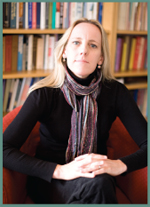EDITOR’S NOTE
 It’s been a tough time to write about the political and economic climate in Washington, DC. Just fifteen days after a mentally ill civilian contractor killed twelve people at the Washington Navy Yard, the U.S. Congress failed to pass a spending bill in time for the beginning of the fiscal year October 1. And so, as a result of opposition by Republicans in the U.S. House of Representatives to the Affordable Care Act, the federal government shut down and more than 800,000 “nonessential” employees were furloughed.
It’s been a tough time to write about the political and economic climate in Washington, DC. Just fifteen days after a mentally ill civilian contractor killed twelve people at the Washington Navy Yard, the U.S. Congress failed to pass a spending bill in time for the beginning of the fiscal year October 1. And so, as a result of opposition by Republicans in the U.S. House of Representatives to the Affordable Care Act, the federal government shut down and more than 800,000 “nonessential” employees were furloughed.
Things got darker from there: a woman was shot dead by Capitol Police after a bizarre car chase, and days later a man set himself on fire on the National Mall. As the sun set on October 16 the tension continued and hands kept wringing while we worried that if the $16.7 trillion debt ceiling wasn’t raised, the United States would find itself in serious trouble.
Federal legislators’ public approval ratings for their handling of budget negotiations are bleak, especially for Republicans. And you can bet that humanists are just as fed up as everyone else. In case you were wondering what humanists can possibly do to have any positive impact on who’s elected to Congress from here on out, consider the latest political action committee to join the ever-growing field of PACs, the Freethought Equality Fund. Launched by the Center for Humanist Activism on September 18, the new PAC promises to help fund humanist, atheist, and agnostic candidates at all levels of government. Bishop McNeill, the new PAC’s coordinator, told me that in addition to an outpouring of positive feedback from the secular community, he’s already received several endorsement requests from atheist candidates nationwide who are seeking election to their local city councils, and even from a few congressional hopefuls.
“We want to support candidates who have the political courage and honesty to be open about their beliefs and how they would vote on particular policy issues regardless of the impact it might have on their next election,” says McNeill. “The most important factor in determining whether or not we endorse a particular candidate will be how they intend to vote on issues that secular Americans care about, like the separation of church and state and defending civil liberties.” (And keeping the government running, right?)
Of course, there are other important topics to cover in this year-end issue. As is our tradition, we honor the 2013 Humanist of the Year Dan Savage for his rational and radical compassion, for being just as funny and wise and engaging in person as you might think, and for being an all-around great human being (who, contrary to what he keeps saying, is most worthy of the award). So take a break from the government mess to read what he and the other esteemed AHA awardees have to say about sex, equality, sexual orientation, the future of humanism, sexual politics, relationships, sex, and… did I mention there’s a fair amount of sex talk in this issue? Hey, just because we humanists pride ourselves on being reasonable, we’re only human after all. Happy humanism, happy holidays.![]()
—Jennifer Bardi
